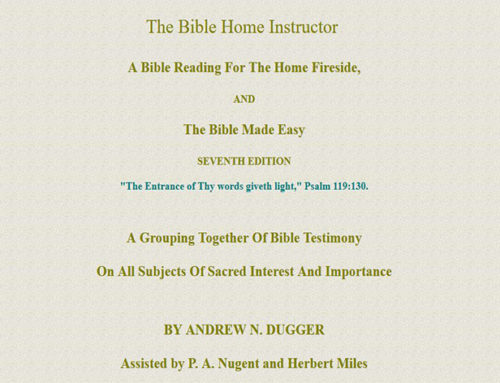1. To what extent did the wise man test the pleasures of the world?
“Whatsoever mine eyes desired I kept not from them, I withheld not my heart from any joy,” Ecclesiastes 2:10. “I said in mine heart, Go to now, I will prove thee with mirth, therefore enjoy pleasure,” verse 1.
2. How much true enjoyment did such a course afford?
“Behold, all was vanity and vexation of spirit, and there was no profit under the sun,” Ecclesiastes 2:11. “Even in laughter the heart is sorrowful; and the end of that mirth is heaviness,” Proverbs 14:13.
3. To whom alone is such mirth enjoyable?
“Folly is joy to him that is destitute of wisdom,” Proverbs 15:21.
4. What conclusion did the wise man reach?
“Then I saw that wisdom excelleth folly, as far as light excelleth darkness,” Ecclesiastes 2:13.
5. Why is sobriety preferable to levity?
“Sorrow is better than laughter: for by the sadness of the countenance the heart is made better,” Ecclesiastes 7:3.
“It is better to go to the house of mourning, than to go to the house of feasting: for that is the end of all men; and the living will lay it to his heart,” verse 2.
6. Of what does the wise man bid the young to be mindful, even in the pursuit of pleasure?
“Rejoice, O young man, in thy youth; and let thy heart cheer thee in the days of thy youth, and walk in the ways of thine heart, and in the sight of thine eyes: but know thou, that for all these things God will bring thee into judgment,” Ecclesiastes 11:9.
7. What injunction to sobriety does the apostle give in his epistle to Titus?
“That the aged men be sober, grave, temperate, sound in faith, in charity, in patience. The aged women likewise, that they be in behaviour as becometh holiness, not false accusers, not given to much wine, teachers of good things; that they may teach the young women to be sober . . . .
Young men likewise exhort to be soberminded,” Titus 2:2-6.
8. What similar advice is given in the epistle to the Romans?
“Let us walk honestly, as in the day; not in rioting and drunkenness, not in chambering and wantonness, not in strife and envying,” Romans 13:13.
9. What testimony does the apostle Peter bear on this point?
“Wherefore gird up the loins of your mind, be sober, and hope to the end for the grace that is to be brought unto you at the revelation of Jesus Christ,” I Peter 1:13.
10. Why is vigilance necessary?
“Be sober, be vigilant; because your adversary the devil, as a roaring lion, walketh about, seeking whom he may devour,” I Peter 5:8.
11. What other consideration should lead us to sobriety?
“But the end of all things is at hand: be ye therefore sober, and watch unto prayer,” I Peter 4:7.


Leave A Comment